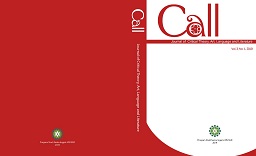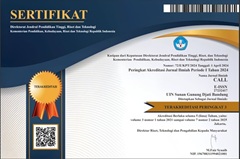IMAGINATION AND AMBITION OF CHILDREN CHARACTER IN J.K. ROWLING NOVEL HARRY POTTER AND THE ORDER OF PHOENIX (2003)
DOI:
https://doi.org/10.15575/call.v2i1.8742Abstract
Every parent has high hopes for their children. They will protect their children from a bad environment to keep them from behaving badly too. This is also because their minds will be influenced by the environment in which they grow and develop. Because this research is based on literature, the researcher uses literary devices to support good and accurate research. Therefore, this paper uses qualitative research that provides description of the phenomena. For more technical analysis on the comparison of the data taken from the novel, this research uses comparative literature method. The results show that novel Harry Potter and The Order of Phoenix presents clearly the struggle of Harry and his friends to defeat Voldemort and his followers. Therefore, after the death of his parents, Harry was entrusted to a good family and an environment filled with people who really care about him. Imagination and ambition will be created on the basis of the thoughts of the doer. Therefore, the development of character in terms of ambition and imagination was found in the novel.
Keywords: Literature, Children Character, Imagination, Ambition
Downloads
Published
Issue
Section
Citation Check
License
Authors who publish in CALL agree to the following terms:
- Authors retain copyright and grant the journal right of first publication with the work simultaneously licensed under Attribution-ShareAlike 4.0 International (CC BY-SA 4.0) License that allows others to share the work with an acknowledgment of the work's authorship and initial publication in this journal.
- Authors are able to enter into separate, additional contractual arrangements for the non-exclusive distribution of the journal's published version of the work (e.g., post it to an institutional repository or publish it in a book), with an acknowledgment of its initial publication in this journal.
- Authors are permitted and encouraged to post their work online (e.g., in institutional repositories or on their website) prior to and during the submission process, as it can lead to productive exchanges, as well as earlier and greater citation of published work (See The Effect of Open Access).




